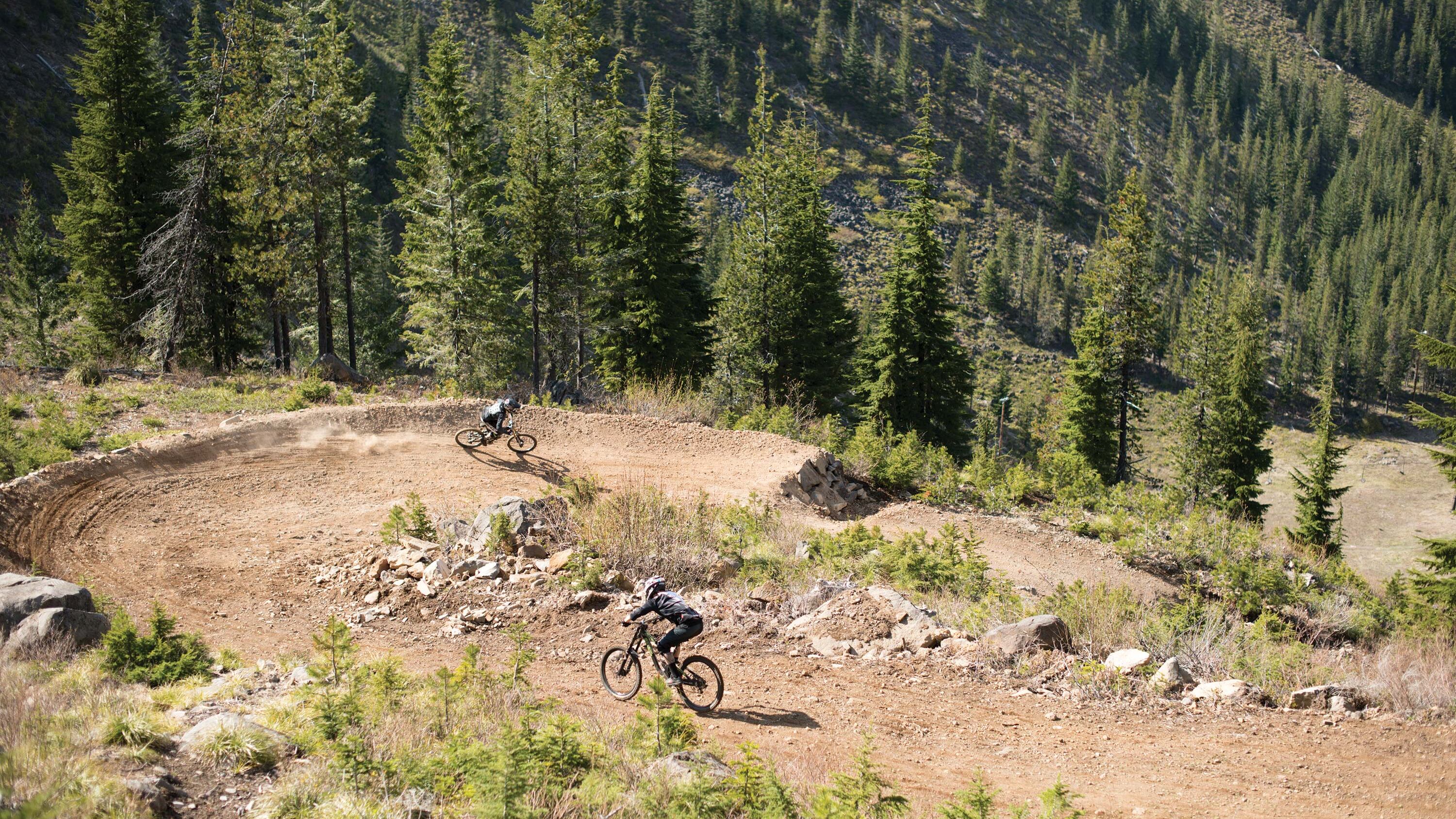Don’t plan on hauling your mountain bike up to Mt. Hood Skibowl this summer. The resort has suspended all cycling operations for the 2022 season after losing a lawsuit filed on behalf of a man who was paralyzed in a crash on one of the trails.
Skibowl posted an announcement about the closure on its website, citing a “recent unprecedented plaintiff verdict.” The resort went on to state that this was the first serious mountain biking claim in its 32-year history overseeing the network of trails that typically open in June.
That verdict was issued this spring by a Multnomah County jury, which awarded $11.4 million to Gabriel Owens, who was riding along the double black diamond Cannonball Trail on July 31, 2016 when his lawyers say he lost control of his bike, crashed and slid downhill. The suit stated he remained in the boundaries of the route, which runs down the north face of Tom, Dick and Harry Mountain, and then slammed into a 4-by-4-inch wooden signpost. The impact injured Owens’ spinal cord and he was paralyzed from the waist down.
The plaintiff’s lawyers argued that the posts along the trail—specifically those within a crash zone where high speeds and falls are foreseeable—should be designed to break away in the event of a collision rather than remaining affixed to the ground, minimizing the risk of potential injuries. They also maintained that signs should be placed outside of crash zones and preferably on existing natural elements, like trees and rocks.
After the verdict, The Oregonian reports that Skibowl’s attorneys were prepared to appeal, having argued that Owens was riding at a high rate of speed before flying over his handlebars and hitting the ground, not the sign. The case was then settled for $10.5 million.
Skibowl’s online statement says that the future of mountain biking there remains uncertain because of Oregon’s current legal landscape, citing liability releases that provide little protection compared to neighboring states, which have liability waivers that generally do not entitle an individual to damages while participating in an activity in recreational settings.
“Oregon has seen some significant lawsuits in recent years with outcomes that make operating a small, recreational business in the state exceedingly challenging,” the post added. “Our industry has focused heavily on user education and operational best practices, while working hard toward mitigating risk where possible. Eliminating all risks with recreational activities—especially in downhill mountain biking through forests at a high speed—is something that is just not possible.”

